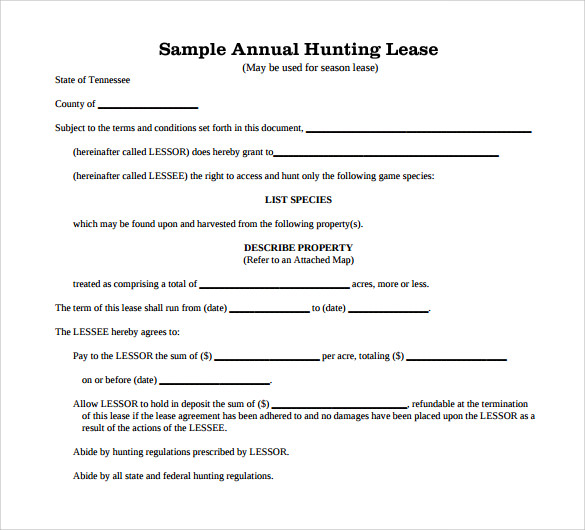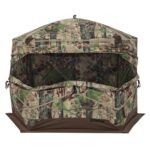Louisiana deer leases offer a unique opportunity for hunters to experience the thrill of the chase in some of the most beautiful and productive hunting grounds in the country. In this comprehensive guide, we’ll delve into the world of Louisiana deer leases, covering everything from types of leases to hunting regulations and tips for success.
Louisiana’s deer hunting industry is a major economic driver for the state, generating millions of dollars in revenue each year. Deer leases play a vital role in this industry, providing hunters with access to prime hunting grounds and the chance to harvest trophy bucks.
Introduction to Louisiana Deer Lease Market
The deer hunting industry in Louisiana is a thriving enterprise, attracting countless hunters from within the state and beyond. The vast and diverse landscapes of Louisiana, including forests, swamps, and marshes, provide an ideal habitat for white-tailed deer, making it a prime destination for hunting enthusiasts.
Deer leases play a significant role in the Louisiana hunting market. They offer hunters exclusive access to private land, allowing them to enjoy a more controlled and successful hunting experience. The demand for deer leases in Louisiana is driven by several factors, including the state’s rich deer population, the availability of suitable hunting land, and the desire for hunters to secure a private and exclusive hunting experience.
Factors Influencing Demand for Deer Leases in Louisiana
- Deer Population: Louisiana has a healthy and abundant deer population, making it a prime destination for deer hunting. The state’s diverse habitats support a large number of deer, ensuring a high success rate for hunters.
- Hunting Land Availability: Louisiana offers a vast amount of suitable hunting land, both public and private. However, private land often provides better access to quality hunting spots and a more controlled hunting experience.
- Exclusive Hunting Experience: Deer leases allow hunters to secure exclusive access to private land, giving them the opportunity to hunt in a controlled and undisturbed environment. This enhances the overall hunting experience and increases the chances of success.
- Social and Recreational Value: Deer leases also provide social and recreational benefits. They offer a platform for hunters to connect with like-minded individuals, share hunting stories, and enjoy the camaraderie of the hunting community.
Types of Deer Leases in Louisiana
Louisiana offers a wide range of deer lease options, each with its own unique characteristics and benefits. Understanding the different types of leases available can help you make an informed decision that meets your hunting needs and preferences.
There are three main types of deer leases in Louisiana: exclusive-use leases, semi-exclusive leases, and day leases.
Exclusive-Use Leases
Exclusive-use leases provide hunters with exclusive access to a specific area of land for hunting purposes. This type of lease is typically the most expensive, but it also offers the highest level of privacy and control over the hunting experience.
Benefits of exclusive-use leases include:
- Exclusive access to a specific hunting area
- Ability to control the number of hunters on the property
- Increased likelihood of success due to reduced hunting pressure
Legal considerations for exclusive-use leases include:
- The lease must be in writing and signed by both the landowner and the lessee.
- The lease must specify the boundaries of the hunting area.
- The lease must specify the terms of the lease, including the duration of the lease and the amount of rent.
Semi-Exclusive Leases
Semi-exclusive leases allow multiple hunters to share access to a specific area of land for hunting purposes. This type of lease is typically less expensive than an exclusive-use lease, but it also offers less privacy and control over the hunting experience.
If you’re looking for a great place to hunt deer in Louisiana, you might want to consider leasing a hunting property. Many hunting leases are available throughout the state, and they can provide you with access to some of the best hunting grounds in the area.
In addition to deer, you may also be able to hunt other animals on your lease, such as turkeys, hogs, and squirrels. If you’re interested in mounting your deer, you may want to consider a european deer mount skull . This type of mount is becoming increasingly popular, and it can provide you with a unique and stylish way to display your trophy.
You can also lease hunting property in Louisiana for various durations, from short-term to long-term, depending on your needs and budget.
Benefits of semi-exclusive leases include:
- Lower cost than exclusive-use leases
- Access to a larger hunting area
- Opportunity to hunt with friends or family
Legal considerations for semi-exclusive leases include:
- The lease must be in writing and signed by both the landowner and all of the lessees.
- The lease must specify the boundaries of the hunting area.
- The lease must specify the terms of the lease, including the duration of the lease, the amount of rent, and the number of hunters allowed on the property.
Day Leases
Day leases allow hunters to access a specific area of land for hunting purposes on a daily basis. This type of lease is typically the least expensive, but it also offers the least amount of privacy and control over the hunting experience.
Benefits of day leases include:
- Low cost
- Flexibility to hunt when you want
- Opportunity to try out different hunting areas
Legal considerations for day leases include:
- The lease must be in writing and signed by both the landowner and the lessee.
- The lease must specify the boundaries of the hunting area.
- The lease must specify the terms of the lease, including the duration of the lease, the amount of rent, and the number of hunters allowed on the property.
Finding and Acquiring a Deer Lease in Louisiana


Acquiring a deer lease in Louisiana involves searching, negotiating, and securing the lease. Due diligence and legal documentation are crucial to ensure a successful and hassle-free experience.
Finding a deer lease can be done through online platforms, local hunting clubs, or real estate agents specializing in hunting properties. It’s important to research different areas, compare lease rates, and determine the availability of amenities such as hunting blinds and food plots.
Negotiating and Securing a Lease
Once you’ve found a suitable deer lease, it’s time to negotiate the terms of the lease agreement. This includes discussing the lease duration, hunting rights, guest policies, and any other relevant provisions. It’s advisable to have a lawyer review the lease agreement before signing to ensure your interests are protected.
Due Diligence and Legal Documentation, Louisiana deer lease
Before signing a deer lease, it’s essential to conduct due diligence by verifying the property boundaries, checking for any potential encumbrances, and ensuring the landowner has the legal authority to lease the property for hunting purposes. Proper legal documentation is crucial to avoid disputes and ensure a smooth leasing experience.
Managing a Deer Lease in Louisiana
Effective management of a deer lease in Louisiana is crucial for ensuring the sustainability of the deer population and the overall health of the ecosystem. The responsibilities of a deer lease manager extend beyond simply collecting rent and allocating hunting spots.
A successful deer lease manager must possess a deep understanding of wildlife management principles, habitat improvement techniques, and deer population dynamics. They must also be able to work effectively with lease members and neighboring landowners to ensure that the lease is managed in a responsible and ethical manner.
Wildlife Management Practices
Effective wildlife management practices are essential for maintaining a healthy deer population on a lease. These practices include:
- Setting appropriate harvest quotas
- Monitoring deer populations
- Providing supplemental food and water sources
- Controlling predators
- Implementing habitat improvement measures
Habitat Improvement
Habitat improvement is essential for providing deer with the resources they need to thrive. This includes planting food plots, creating water sources, and managing forest stands to provide cover and browse. By improving the habitat on a lease, managers can increase the carrying capacity of the land and improve the overall health of the deer population.
Deer Population Monitoring
Monitoring the deer population on a lease is essential for ensuring that the population is healthy and sustainable. This can be done through a variety of methods, including trail cameras, aerial surveys, and hunter harvest data. By monitoring the population, managers can make informed decisions about harvest quotas and other management practices.
While scouting for the perfect Louisiana deer lease, consider protecting your vehicle with a deer guard volvo . These sturdy accessories can prevent costly damage from deer collisions, allowing you to focus on the hunt without worry. Remember, a deer guard volvo is an investment in both your vehicle and your peace of mind as you navigate the dense Louisiana wilderness in search of that trophy buck.
Hunting on a Deer Lease in Louisiana
Hunting on a deer lease in Louisiana offers a unique and exciting opportunity to experience the thrill of the hunt. With vast tracts of land and an abundance of deer, Louisiana is a hunter’s paradise. However, it’s crucial to be familiar with the hunting regulations and seasons, as well as the ethical considerations and best practices for hunting on a deer lease.
To ensure a successful and safe hunting experience, it’s essential to follow the hunting regulations set forth by the Louisiana Department of Wildlife and Fisheries (LDWF). These regulations include specific seasons for hunting deer, bag limits, and weapon restrictions. It’s the responsibility of every hunter to stay informed about the current regulations and adhere to them strictly.
Tips and Techniques for Successful Deer Hunting
To increase your chances of success while deer hunting, consider employing the following tips and techniques:
- Scouting:Spend time scouting the area before the season to identify potential deer movement patterns and hunting spots.
- Stand Placement:Choose stand locations carefully, considering factors such as wind direction, cover, and deer trails.
- Patience and Persistence:Deer hunting requires patience and persistence. Be willing to sit quietly in your stand for extended periods, and don’t give up if you don’t see deer immediately.
- Shot Placement:When the opportunity presents itself, make sure to take a well-aimed shot. A clean kill is ethical and ensures a quick and humane harvest.
- Proper Gear:Invest in quality hunting gear, including camouflage clothing, a comfortable stand, and a reliable rifle or bow.
Ethical Considerations and Best Practices
Hunting on a deer lease is a privilege that comes with ethical responsibilities. Here are some best practices to consider:
- Respect Wildlife:Treat deer and other wildlife with respect. Avoid disturbing them unnecessarily, and always follow ethical hunting practices.
- Respect Other Hunters:Be mindful of other hunters on the lease. Avoid setting up stands too close to theirs and maintain a safe distance while hunting.
- Leave No Trace:Pack out everything you pack in, and leave the hunting area as you found it. Respect the land and wildlife by minimizing your impact.
- Follow the Law:Adhere to all hunting regulations and laws. This includes obtaining the necessary licenses and permits, and following bag limits and weapon restrictions.
Louisiana Deer Lease Rates and Availability


Louisiana deer lease rates vary depending on several factors, including the size of the property, the quality of the hunting, and the location. In general, lease rates range from $500 to $2,000 per year, with an average of $1,200.Factors that influence lease prices include:*
-*Property size
Larger properties typically have higher lease rates than smaller properties.
-
-*Hunting quality
Properties with good deer populations and a history of successful hunting tend to have higher lease rates.
-*Location
Properties located in areas with high deer populations and easy access to hunting stands tend to have higher lease rates.
The availability of deer leases in Louisiana varies depending on the region of the state. In general, deer leases are more available in the northern and western parts of the state, where there is more public land available for hunting.
In the southern and eastern parts of the state, deer leases are less available due to the high population density and the lack of public land.
Conclusion: Louisiana Deer Lease


In conclusion, deer leases in Louisiana offer a unique opportunity for hunters to experience the thrill of the hunt in some of the most productive deer habitat in the country. The various types of leases available cater to different budgets and preferences, making it possible for hunters of all levels to find a lease that meets their needs.
The importance of deer leases in Louisiana cannot be overstated. They provide a vital source of revenue for landowners, support local businesses, and contribute to the overall economy of the state. Additionally, deer leases play a crucial role in wildlife management, helping to control deer populations and maintain a healthy ecosystem.
Recommendations for Further Research
While this article has provided a comprehensive overview of the Louisiana deer lease market, there are several areas that warrant further research:
- The impact of deer leases on the local economy and wildlife management.
- The development of new and innovative deer lease management practices.
- The role of deer leases in promoting hunting tourism in Louisiana.
Summary


Whether you’re a seasoned hunter or just starting out, Louisiana deer leases offer something for everyone. With its diverse landscapes, abundant wildlife, and rich hunting traditions, Louisiana is the perfect place to experience the thrill of the hunt.
Question Bank
How much does a deer lease cost in Louisiana?
The cost of a deer lease in Louisiana varies depending on the size of the property, the location, and the amenities offered. However, you can expect to pay anywhere from $500 to $5,000 per year for a deer lease.
What are the different types of deer leases in Louisiana?
There are three main types of deer leases in Louisiana: exclusive leases, semi-exclusive leases, and open leases. Exclusive leases give the leaseholder exclusive access to the property, while semi-exclusive leases allow multiple leaseholders to hunt on the property. Open leases are available to anyone who pays a fee.
What are the hunting regulations for deer in Louisiana?
The Louisiana Department of Wildlife and Fisheries regulates deer hunting in the state. Hunters must have a valid hunting license and deer tag in order to hunt deer. The bag limit for deer is one buck per day, and two bucks per season.







